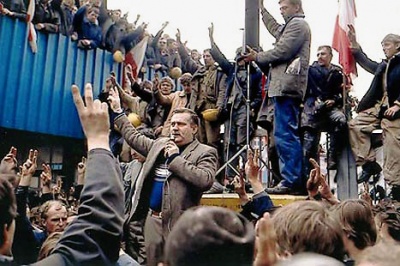Poland: Lech Wałęsa and Polish Solidarity ?
1980
It was obvious by the late 1970s that the workers? paradise that was supposed to exist on the east side of the Iron Curtain was nothing more than propaganda. In an effort to draw attention to workers? rights and improve working conditions, on 14 August, 1980 Lech Wałęsa climbed the fence of the Lenin shipyard in Gdansk to join his fellow workers in a strike aimed at bringing about positive change through the creation of independent trade unions. Less than one month later, the Polish government agreed to sign the ?Gdansk Agreement,? thereby giving workers the right to strike and organize themselves independent of managers. Despite running the risk of being arrested, as he later would be on December 13, 1981, Wałęsa became the head of a national federation of unions, named Solidarność, or ?Solidarity.?
Although the Solidarity movement would later be outlawed in December 1981 under General Wojciech Jaruzelski, the movement would prove to be invaluable at the end of the decade for the entire region as a positive example of what peaceful, self-organized groups could accomplish in efforts for freedom and justice. Part of what made Solidarity so successful was its vocal renunciation of violence as well as its ability to appeal to all sections of Polish society: workers, academics, and religious figures alike.
